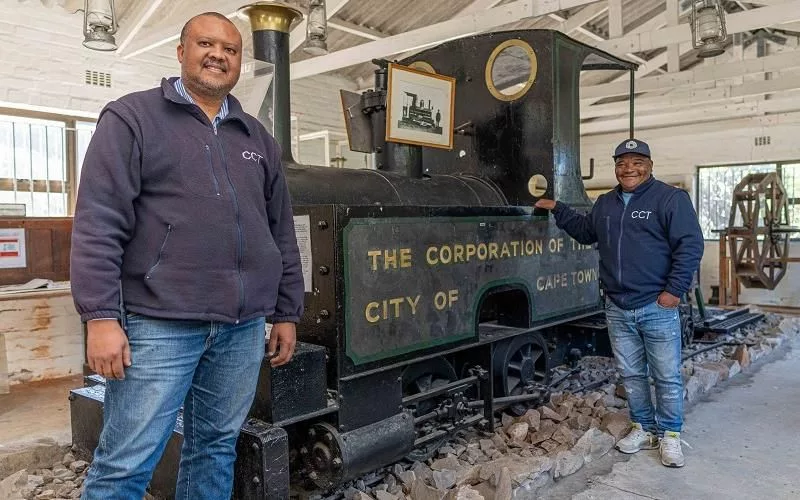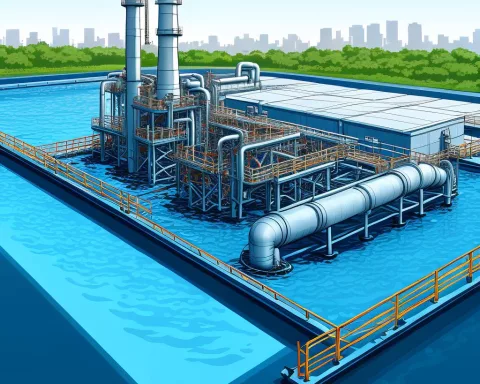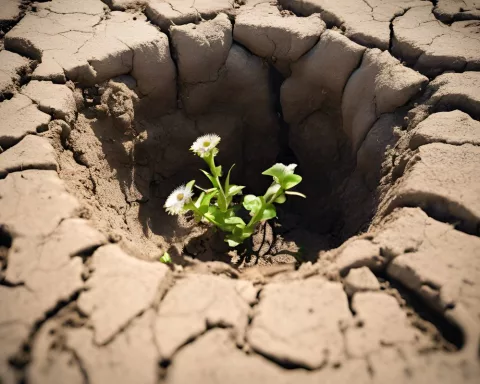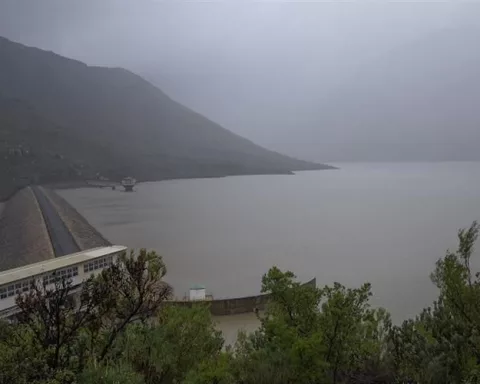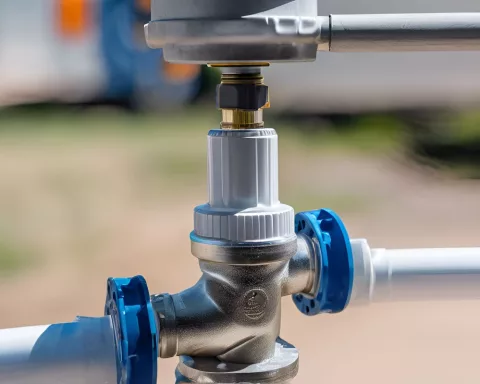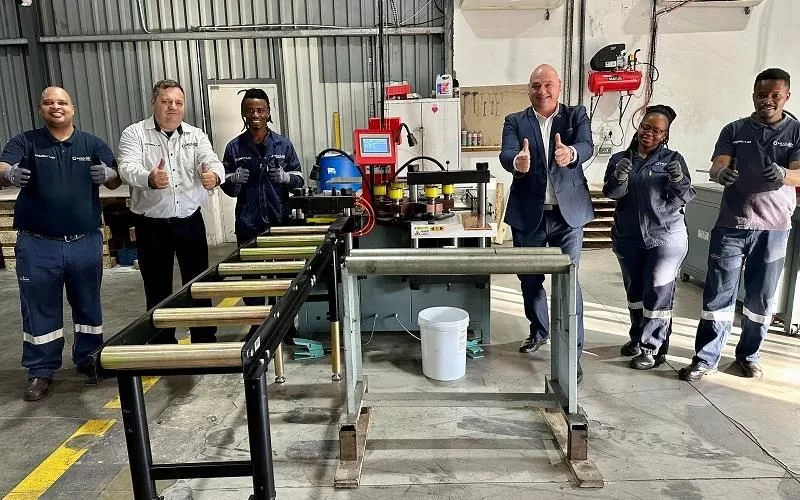The Woodhead Dam Museum in Cape Town is a historical museum that takes visitors on a journey through time to learn about the city’s water supply. It offers a collection of specialized equipment and artifacts, including a steam train, hand tools, instruments, and flow measuring devices. Visitors can explore the rich 127-year history of the dam and its complex construction process. The museum serves as a visual record of the City’s water heritage and highlights the urgency of water conservation.
What is the Woodhead Dam Museum in Cape Town?
The Woodhead Dam Museum is a historical museum managed by the City’s Water and Sanitation Directorate. It invites visitors to journey through time and learn about the historical narratives of Cape Town’s water supply. The museum offers a collection of specialized equipment and artifacts, including a steam train, hand tools, instruments, and flow measuring devices. Visitors can learn about the dam’s complex construction process during the 1850s and appreciate the value of water conservation.
A Portal to Cape Town’s Water History
The month-long celebration of International Museum Month may have concluded but a treasure still awaits public exploration. The Woodhead Dam Museum, managed by the City’s Water and Sanitation Directorate, is a gem tucked away in the Hely Hutchinson Dam on Table Mountain. This museum invites its visitors to journey through time, unveiling the historical narratives of Cape Town’s water supply.
This establishment is more than a museum. It’s a testament to engineering marvels and the courage of a bygone era. The Woodhead Dam, once a primary water source for Cape Town, has a story worth telling. This tale is vividly narrated in the museum, overseen by the Bulk Water branch of the City’s Water and Sanitation Directorate since 1972.
Visitors are captivated by the rich 127-year history of the dam and its complex construction process. The museum offers a collection of specialized equipment that includes a steam train, hand tools, instruments, and flow measuring devices. These historical pieces are reminders of a time when engineering feats were groundbreaking.
Among Fellow Dams and Accessibility
The Woodhead Dam is one of five minor dams located in the area that also includes Hely Hutchinson, Alexandra, De Villiers, and Victoria. These reservoirs are key in Cape Town’s water supply system, ensuring a consistent supply to the Kloof Nek and Constantia Kloof Water Treatment Plants. The water from these plants is then channeled to the Central City and surrounding areas via the Molteno Reservoir.
Reaching the dam is an adventure in itself. One option is to hike up Table Mountain from Constantia Nek, while the other is to enjoy the awe-inspiring ride provided by the Table Mountain Aerial Cableway.
This year’s theme, “Museums, Education, and Research,” emphasizes the critical role of museums in providing comprehensive educational experiences. They are platforms advocating for a world that is more conscious, sustainable, and inclusive.
The Museum’s Legacy and Water Conservation Efforts
On International Museum Day, May 18th, 2024, Councillor Zahid Badroodien, Mayoral Committee Member for Water and Sanitation, praised the museum’s extensive collection of historical data and artefacts.
Councillor Badroodien proclaimed that the Woodhead Dam Museum serves as a visual record of the City’s water heritage. He urged both residents and tourists of Cape Town to enrich their Table Mountain visit by exploring this museum.
The dam’s construction during the 1850s, a time marked by significant water scarcities, echoes similarities with the recent water crisis between 2015 and 2018. This parallel history reminds us of our susceptibility to water shortages and highlights the urgency of water conservation.
In a proactive response, the city is tirelessly implementing its New Water Programme. The objective of this initiative is to increase the daily water supply of the city to 300 million litres by 2040. This plan also aims to diversify water sources and lessen dependence on dams and unpredictable rainfall.
Visiting the Woodhead Dam Museum
To learn more about this intriguing part of Cape Town’s history, the museum is open to visitors from 09:00 to 14:00 on weekdays, depending upon staff availability. For further details regarding visits, please contact:
- Lester Smith: 021 400 3143
- Mogamat Tape Samsodien: 021 444 9577
- Gregory Samuels: 021 444 9584
As you embark on this journey through Cape Town’s water history at the Woodhead Dam Museum, keep in mind to be water-wise. Appreciate the value of this life-sustaining resource and play your part in its conservation.
What is the Woodhead Dam Museum in Cape Town?
The Woodhead Dam Museum is a historical museum managed by the City’s Water and Sanitation Directorate. It invites visitors to journey through time and learn about the historical narratives of Cape Town’s water supply. The museum offers a collection of specialized equipment and artifacts, including a steam train, hand tools, instruments, and flow measuring devices. Visitors can learn about the dam’s complex construction process during the 1850s and appreciate the value of water conservation.
What can visitors expect to see at the Woodhead Dam Museum?
Visitors can expect to see a collection of specialized equipment and artifacts related to Cape Town’s water supply, including a steam train, hand tools, instruments, and flow measuring devices. The museum offers a journey through time to learn about the complex construction process of the Woodhead Dam during the 1850s and appreciate the value of water conservation.
How does the Woodhead Dam fit into Cape Town’s water supply system?
The Woodhead Dam is one of five minor dams located in the area that also includes Hely Hutchinson, Alexandra, De Villiers, and Victoria. These reservoirs are key in Cape Town’s water supply system, ensuring a consistent supply to the Kloof Nek and Constantia Kloof Water Treatment Plants. The water from these plants is then channeled to the Central City and surrounding areas via the Molteno Reservoir.
What is the significance of the Woodhead Dam Museum?
The Woodhead Dam Museum serves as a visual record of the City’s water heritage. It highlights the urgency of water conservation by reminding visitors of the dam’s complex construction process during the 1850s, a time marked by significant water scarcities that echoes similarities with the recent water crisis between 2015 and 2018. The museum is also a testament to engineering marvels and the courage of a bygone era.
How can visitors reach the Woodhead Dam Museum?
Visitors can hike up Table Mountain from Constantia Nek or enjoy the awe-inspiring ride provided by the Table Mountain Aerial Cableway to reach the Woodhead Dam Museum.
What are the visiting hours of the Woodhead Dam Museum?
The Woodhead Dam Museum is open to visitors from 09:00 to 14:00 on weekdays, depending upon staff availability. For further details regarding visits, please contact Lester Smith, Mogamat Tape Samsodien, or Gregory Samuels.

